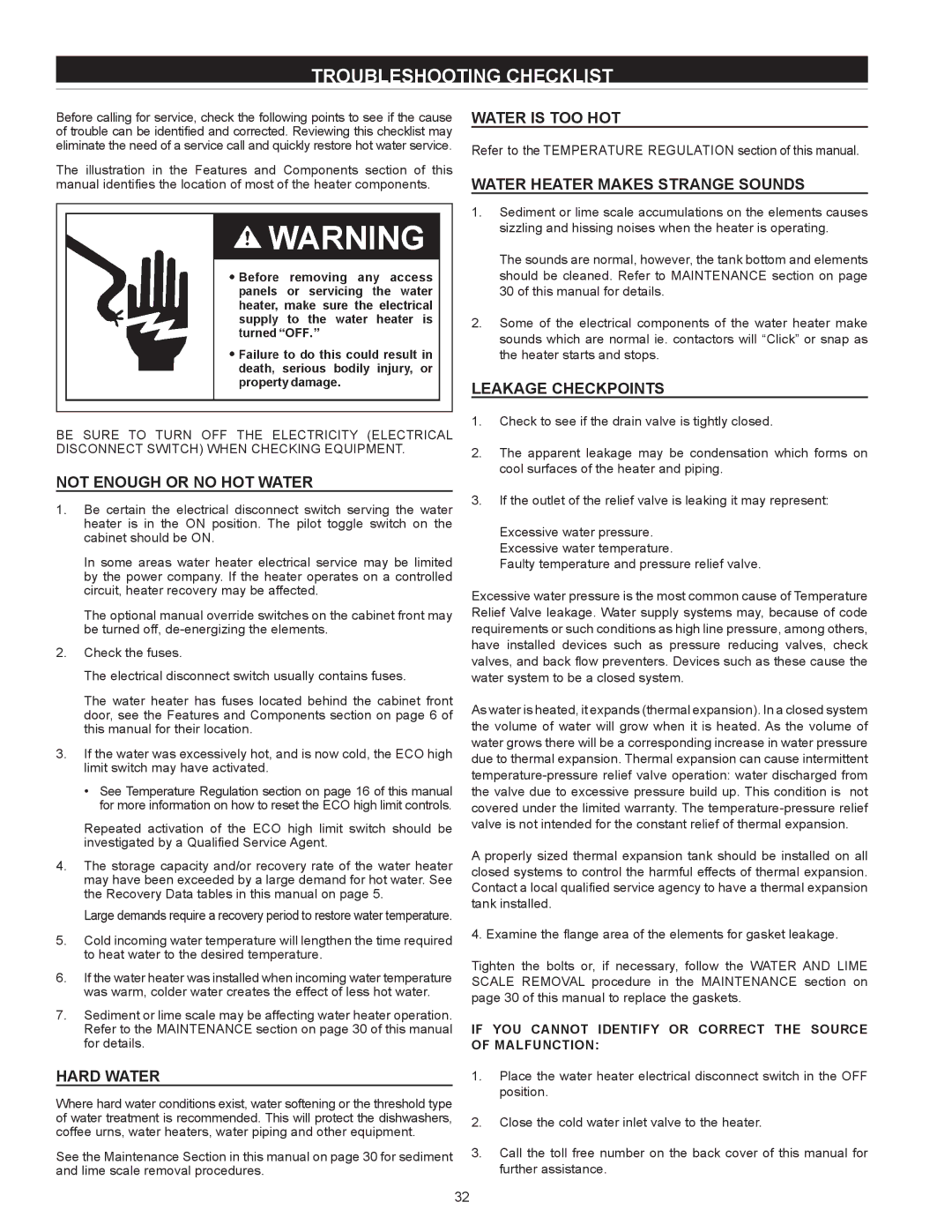SSED 5 specifications
State Industries, a prominent player in the heating and cooling sector, has unveiled its latest product, the SSED 5 series. This state-of-the-art water heater stands out in the market due to its unique features and advanced technologies designed to enhance efficiency, durability, and user-friendliness.One of the key characteristics of the SSED 5 series is its innovative design. Constructed using high-quality materials, the unit is built to withstand the rigors of everyday usage while minimizing corrosion and wear. The external casing is both aesthetically pleasing and functional, providing adequate insulation to reduce heat loss, which in turn improves energy efficiency.
Energy-saving technologies are at the forefront of the SSED 5 series. It utilizes advanced heating elements that offer superior performance compared to traditional models. This includes a high thermal efficiency rating, allowing users to enjoy consistent hot water without incurring high utility bills. Moreover, the SSED 5 is equipped with integrated smart technology that enables users to monitor and control the unit remotely via a mobile app. This feature adds convenience and promotes energy conservation by allowing adjustments to be made according to real-time needs.
The SSED 5’s performance is further enhanced by its user-friendly digital control panel. This intuitive interface simplifies operation, allowing users to easily set their preferred water temperature and access diagnostic information. Safety features are also paramount, with built-in mechanisms to prevent overheating and leaks, ensuring peace of mind during operation.
Additionally, the SSED 5 series is notable for its environmental compliance. A commitment to sustainable practices is evident in its low emissions and energy-efficient operation, which contributes to reducing the overall carbon footprint.
In summary, the State Industries SSED 5 series represents a remarkable advancement in water heater technology. With its robust design, energy efficiency, smart technology integration, user-friendly interface, and safety features, it caters to modern consumers looking for reliable and effective heating solutions. As the demand for efficient and environmentally friendly products continues to rise, the SSED 5 is poised to meet and exceed market expectations. This makes it a leading choice for homeowners seeking innovation and quality in their hot water systems.

